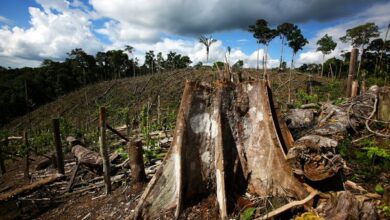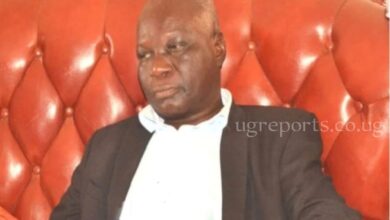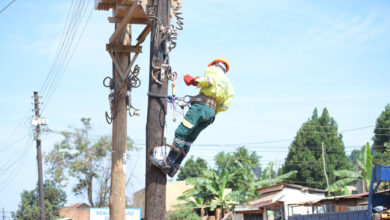
By Guest Writer
Opinion: On February 7, 2024, an independent online paper reported that TotalEnergies notified the government seeking a license to construct the Tilenga Liquefied Petroleum Gas (LPG) facility.
The Ministry of Energy and Mineral Development (MEMD) should reconsider this decision in light of the serious concerns our country has already raised regarding climate change, human rights violations, and environmental degradation associated with the Tilenga oil project.
Firstly, I want to take this opportunity to thank the government for its dedication and efforts in managing Uganda’s oil and gas sector. Your commitment to responsible development and regulatory oversight is essential to safeguarding the environment, protecting communities, and ensuring sustainable utilization of natural resources.
It should be noted that the Tilenga oil project has already brought significant changes to people’s lives and their surroundings in oil host communities, and through oil, people have witnessed the degradation of their environment, loss of biodiversity, and disruption of their traditional livelihoods.
Additionally, the gas facility will further exacerbate these issues and pose a grave threat to their well-being and the sustainability of their future, which shows that the LPG facility may not solve Uganda’s energy needs.
Additionally, I believe that allowing TotalEnergies to produce gas at the Tilenga oil project will increase the already dire impacts of climate change because it should be noted that the extraction and burning of fossil fuels, including natural gas, are major contributors to greenhouse gas emissions, which are driving global warming and causing devastating effects on communities and ecosystems worldwide.
We should therefore note that granting a license for gas production at Tilenga will not only perpetuate people’s dependence on fossil fuels but also hinder Uganda’s efforts to transition to clean energy by 2030.
Furthermore, it should be noted that numerous human rights violations and environmental harms have been inflicted upon oil host communities as a result of the Tilenga oil project since the project’s inception. Some homes in host communities have experienced forced evictions, loss of livelihoods, and destruction of their natural environment, and their voices have been consistently marginalized and their concerns ignored. A license for gas production without addressing these ongoing violations will further disregard the host communities’ rights and well-being.
Moreso, the injustices inflicted by the judiciary upon Tilenga-affected persons underscore the urgent need to reconsider allowing the production of liquefied petroleum gas facilities. People have endured legal marginalization, been denied fair, prompt, and adequate compensation, and faced systemic barriers in seeking redress for their grievances.
Granting further licenses without addressing these injustices perpetuates a cycle of exploitation and disregard. It is imperative to prioritize justice, equity, and the rights of affected communities before allowing additional industrial development.
In addition to the above, the Tilenga oil project has had devastating impacts on the local ecosystem, including deforestation, water pollution, and loss of biodiversity. These environmental damages not only threaten the livelihoods of the oil host communities but also undermine Uganda’s commitments to environmental conservation and sustainable development.
For instance, the fragile ecosystems in the project area, including protected areas such as Murchison Falls National Park (MFNP) and the Albertine rift forests, are particularly vulnerable to the adverse impacts of fossil fuel activities, threatening biodiversity and ecosystem services upon which local communities depend.
In a nutshell, to solve Uganda’s energy needs,the government must prioritise the interests and well-being of affected communities over the profits of multinational corporations, and I call upon the Ministry of Energy and Mineral Development (MEMD) not to grant TotalEnergies a license for producing liquefied petroleum gas at the Tilenga oil project and instead invest in renewable energy solutions that promote environmental sustainability and improve people’s standards of living. For God and My Country
The author is Olive Atuhaire, Research Associate.
Disclaimer: As UG Reports Media LTD, we welcome any opinion from anyone if it’s constructive for the development of Uganda. All the expressions and opinions in this write-up are not those of UG Reports Media Ltd. but of the author of the article.
Would you like to share your opinion with us? Please send it to this email: theugreports@gmail.com.






